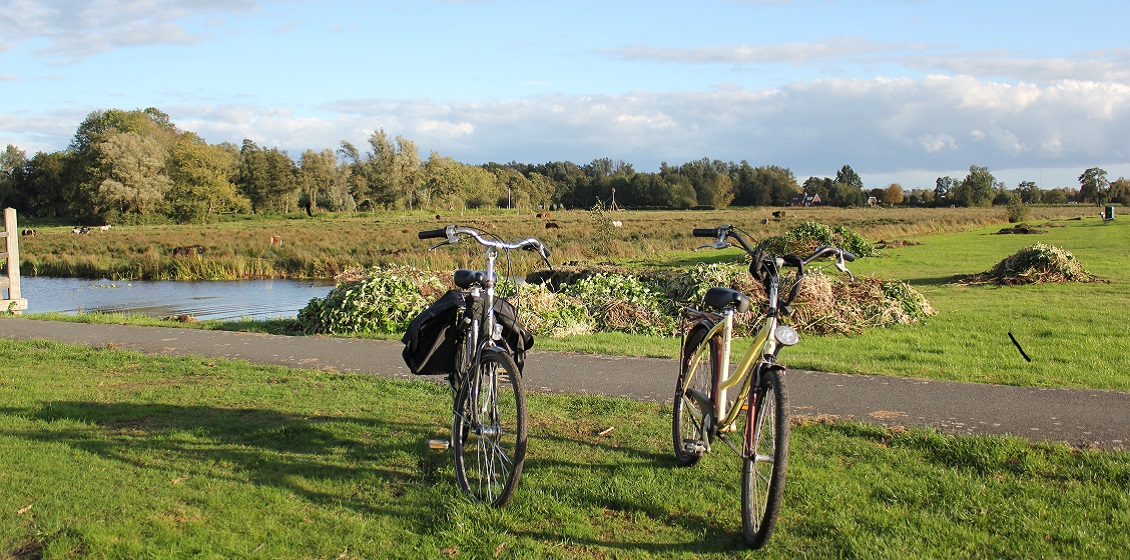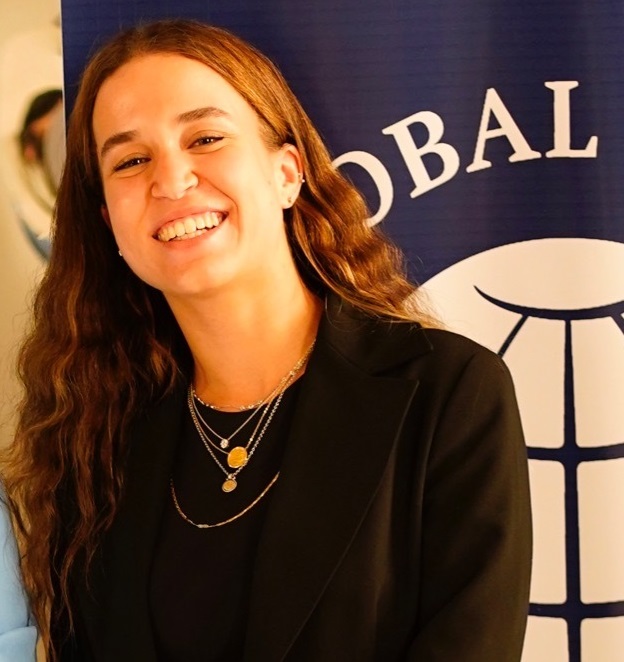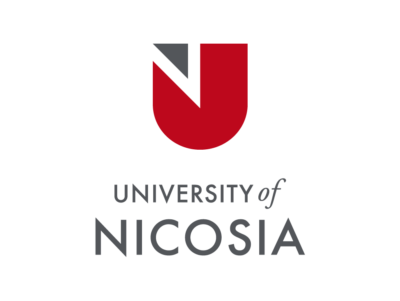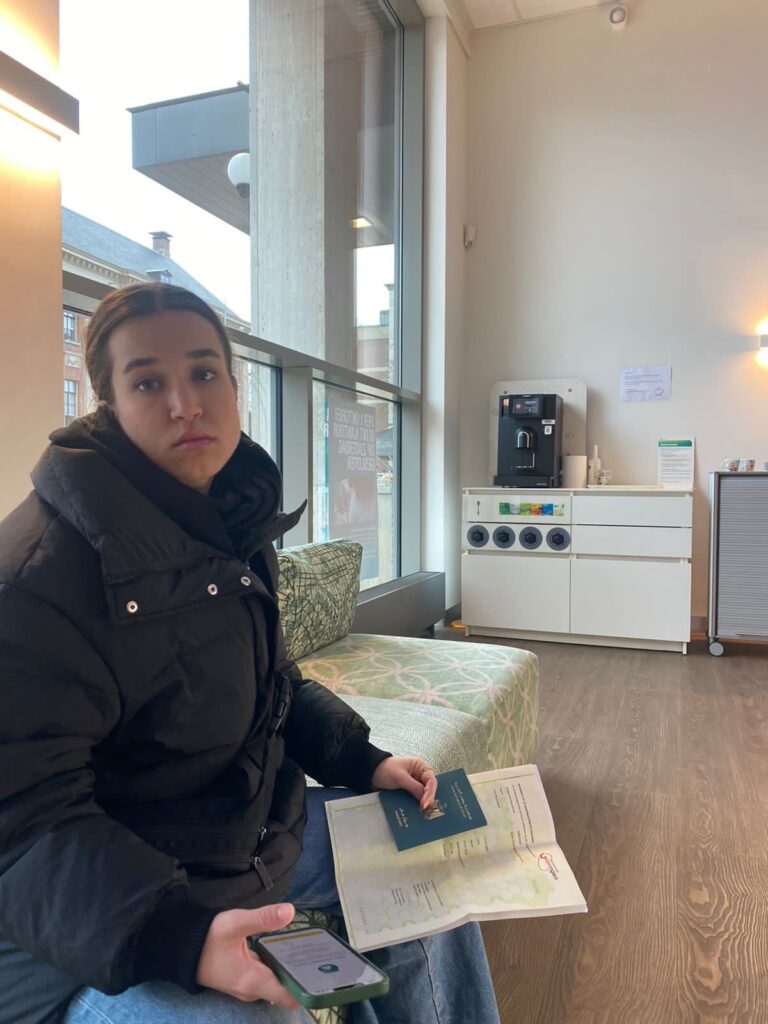Moving abroad, whether it is to study or work, is never easy. Actively deciding to move away from all that you know, and most importantly from your family and friends, in pursuit of what is thought of as “a better life,” is an extremely difficult decision to make. One is faced with challenges from the day they decide to move, and then continuously as they navigate their new life. These challenges start with visa-processes and financial difficulties, and continue with social alienation, discrimination, and a life that can be seen as designed to make that of a foreigner harder. This article will be written in multiple parts, starting with my personal experiences going abroad followed by a series of questions asked to others that have moved abroad regarding their experiences, challenges, opportunities, and reasons for wanting to live abroad.
The point of this article is to showcase the experiences of those moving from non-EU countries into the EU, whether that be good or bad. Understanding the experiences of non-EU nationals contributes to multiple aspects of the politics of the daily life, including the promotion of diversity, inclusion, human rights, equality, social cohesion, and policy development. With the rise of the far-right, there is the consequential rise of racism and discrimination in multiple sectors, that being socially or systematically. Thus, the movement of people from outside of the EU into the EU has made people to feel as though they are “legally, illegal”.
Moving to Cyprus
My personal story started on a small island that is not too far from home. I was 18 years old when I moved from Egypt to Cyprus. The journey started with obtaining a student visa, which involved a lot of health-related tests, including blood examinations, tuberculosis x-rays, a stool test, and a test for syphilis. This was already quite the shock as syphilis is not an infection that is known to be prevalent in Egypt. These tests were repeated again once in Cyprus.
Cyprus is known for its generally lovely, but humid, weather. The average yearly humidity is known to be at around 55%. This sets the stage for what the weather was like during September, when one had to go through the bureaucratic procedures to obtain a residence permit. The initial stages of obtaining a residence permit as a student happened in Egypt, but continued in Cyprus upon arrival. One initially had to go to an old office with wooden benches for chairs without proper ventilation or air conditioning. There were no clear instructions, and at the time there was only one person working on international students’ cases. One could sit there for any time between 30 minutes to a couple of hours. This waiting period pre-covid took place in-doors, and then resulted in n waiting outdoors in the sun and heat for further instructions. We then get a piece of paper, which serves as the official visa paper until the card arrives, which usually happens in March of the following year. Beyond these administrative hurdles, Cyprus revealed itself as a delightful island with favorable weather, hospitable locals, and delicious culinary traditions.
“Innocent Ignorance”
The social aspect of being a student, though, revealed my first experiences with what I now call “innocent ignorance.” The concept of innocent ignorance came to be as I was speaking to my previous employer about ignorance about cultures and traditions, and he said that it is not intentional, but rather an innocent form of ignorance. This is not in reference to the actual general cultures and traditions in Egypt, but rather the misperceived ideologies about Egypt and its people. An example of such would be the manner in which my choice of clothing prompted questions about my religious identity. As stereotypically it is thought of that all people that come from a certain background should dress or behave a certain way, highlighting the need for better cultural understanding and the challenging of stereotypes associated with being a “foreigner.” I would like to believe that with the rise of globalization, there is enough awareness and resources to educate oneself about the “outside world,” being countries outside the EU, North America, UK, and Australia. Innocent ignorance came to be as a form of ignorance without any malicious intent, on a general basis, that only explains ignorance due to a lack of knowledge or ability to acquire knowledge or understanding. This has also become the lens through which I perceive questions shaped by stereotypes such as the belief that Egyptians go to school on camels. Living amidst these stereotypes, deeply ingrained over time, poses a considerable challenge to altering perceptions of individuals in Africa and Southern Asia.
Dutch move
That being said, I currently live in the Netherlands and looking back at my time in Cyprus, I realize that I should have appreciated the sun and weather a lot more than I did. Transitioning to the Netherlands brought forth another chapter of my academic journey, marked by scenic landscapes, amicable locals, and the iconic Dutch bicycles. Nevertheless, it also presented challenges such as encountering uninformed opinions about Muslims while in the classroom, revealing the prevalence of stereotypes and “innocent ignorance.”
The Netherlands, with its picturesque scenery and diversity in cultures, became a home that I cherished. With food allergens, traveling is usually a hassle, but not in the Netherlands. Eating and grocery shopping here is quite easy for someone with many intolerances. I really appreciate the high quality of life in this country. From cycling and walking everywhere, to transparency about food, to the mostly welcoming nature of the people.
The Netherlands is a beautiful place. However, with the rise of the far-right ideology, a classmate’s uninformed remark about Muslims highlighted the detachment between personal connections and broader societal perspectives. The experience emphasizes the dehumanization faced by individuals unfamiliar with foreign cultures and traditions, even within a close-knit community. Unaware of my beliefs or anything about where I come from, a classmate of mine once confidently told me that “the main issue in the Netherlands is Muslims. We should get rid of all of them, or send them to other countries, to solve our issues.” Taken by surprise, as although I would not call this person my best friend, but we were on a friendly basis during class. I then explained my visa situation and the struggles of obtaining and maintaining a visa as a non-EU national. The classmate was then caught by surprise and attempted to make what he said sound better.
Economic Challenges of Different Currencies
One of the challenges of living abroad as a student, is the economic aspect. As someone coming from a country that is suffering from high inflation and devaluation of its currency, facilitating and maintaining my move to the Netherlands meant a big dent in my parents’ Egyptian bank accounts (shoutout to them). A substantial deposit and tuition fees that were a lot higher than those of my European classmates were required, exacerbating the struggle caused by the weakening of the Egyptian Pound. Exploring the economic context further, the cost of living in Europe, particularly as a non-EU citizen, has led to a challenging job search. Despite daily job applications, visa-related challenges have resulted in hundreds of rejections as well as a job termination due to the prolonged visa process. A recurring hurdle in the job application process is the question of requiring visa sponsorship, a query that often leads to rejection. This poses a paradox, as individuals who secure visas through employment often demonstrate a strong commitment to their roles, challenging assumptions about the dedication of non-EU citizens to their jobs. Many students faced with employment challenges resort to enrolling in universities with minimal class contributions in order to maintain their visas. Contrary to misconceptions, these students contribute significantly to the European economy by undertaking jobs that locals may find less appealing.
Universal Experiences
The experience of one person in two European countries should not constitute the whole, and thus a few people who live across Europe, the UK, Canada, and the USA were asked questions about their experiences moving abroad. The answers were mostly similar and unfortunately unsurprising. For example, Sari who moved to Canada due to the prospect of better opportunities, although moving away from Egypt was not his first or favorite choice. “I used to despise the idea of living abroad, now I’m not too sure. I used to think going back home will make me whole again, now I’m not too sure,” said Sari as a response to the personal difficulties faced about moving abroad. He also made a comment in reference to the term of innocent ignorance, saying that he “did not really face any discrimination abroad, only seeing ignorance about where I come from and what makes me culturally the way that I am.” Unfortunately, for Ziad living in Berlin, he had a different experience. Ziad explained how the discrimination that he faces while living in the capital of Germany are covert and not overt, encompassing “stares from people and a refusal to sit next to him on public transportation, etc.” A common challenge that we both faced is the housing crisis (in Berlin and Groningen), which is oftentimes blamed on international students.
For Abdullah, who lived in Nicosia, his highlight of living abroad was the speed of the internet. He fortunately enjoyed his time abroad. Abdullah has prolonged his student visa for a few years, in order to ensure his stay on the lovely island of Cyprus. This comes as a result of the inability to find and maintain a job as a non-EU citizen without a visa. As for Karim in the U.S., “the biggest example of discrimination that I face is in airports. I go through random security checks relatively often. To be completely honest, that has decreased since I have been wearing my dangly earring.
I actually had an airport officer in Chicago once tell me that they still had to see whether they will let me into the country or not when I asked him if he could speed up the process and what exactly was taking so long.”
Amongst all those asked, a predominant answer to my question about wanting to move abroad is due to the economic situation in Egypt and the prospects of better financial opportunities. In a world marked by political shifts and emerging far-right sentiments, it is crucial to understand the experiences of people who choose to move to the EU from non-EU countries. These stories contribute to discussions on diversity, inclusion, human rights, equality, social cohesion and policy development. The economic motives behind the decision to move abroad, which often stem from the difficult economic situation in the home country, further highlight the global interconnectedness of individuals seeking better opportunities,
Finally, the various stories in this article illustrate the complex mosaic of challenges and triumphs that define the lives of people who have chosen to undertake the difficult journey abroad. It reminds us that beyond the bureaucratic processes and economic considerations, the human experience of migration is rich in stories that deserve to be heard and understood.
Maya Rakha is MA International Security from University of Groningen, the Netherlands, and DDRN intern.







